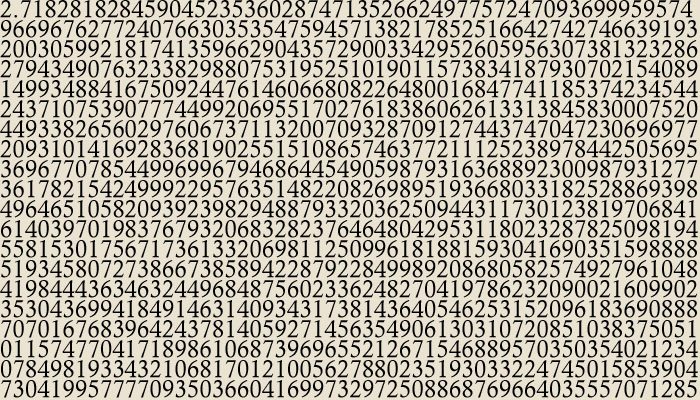
In the field of Number Theory, you can classify a given counting number based on how it compares to the sum of its proper divisors.
If a number is exactly equal to the sum of its proper divisors, it is a Perfect Number. These are the least common, and are really rather sparse. The first few Perfect Numbers are 6, 28, 496, and 8128. That is, 6 can be divided by 1, 2, and 3, and 1 + 2 + 3 = 6. The 10th lowest perfect number has over 50 digits, and the 16th lowest over 1000 digits.
If a number is greater than the sum of its proper divisors, it is a Deficient Number. Most odd numbers are Deficient, as are all the prime numbers. The first few Deficient Numbers are 1, 2, 3, 4, 5, 7, 8, 9, 10, 11, 13, 14, 15, 16, and 17.
If a number is not greater than or equal to the sum of its proper divisors, it is an Excessive Number (also known as an Abundant Number.) The first few Excessive Numbers are 12, 18, 20, 24, 30, 36, 40, 42, 48, and 54. That is, the proper divisor of 24 for example are 1, 2, 3, 4, 6, 8, and 12, and 1 + 2 + 3 + 4 + 6 + 8 + 12 = 36 > 24.
The smallest number that can be represented as the sum of two Excessive Numbers is 24, as 12 is the lowest Excessive Number. Because of their relative density, most numbers higher than 50 can be written as the sum of exactly two Excessive Numbers.
This week’s GeekDad Puzzle of the Week is simple: How many positive integers less than 1,000,000 cannot be written as the sum of exactly two Excessive Numbers?
As always, please send in your answer to GeekDad Central to be considered for the random drawing from among all of the correct (or reasonably close) answers submitted. This week’s prize is once again a $50 Gift Certificate code from the fine folks at ThinkGeek.
Thanks for participating, and happy puzzling!

